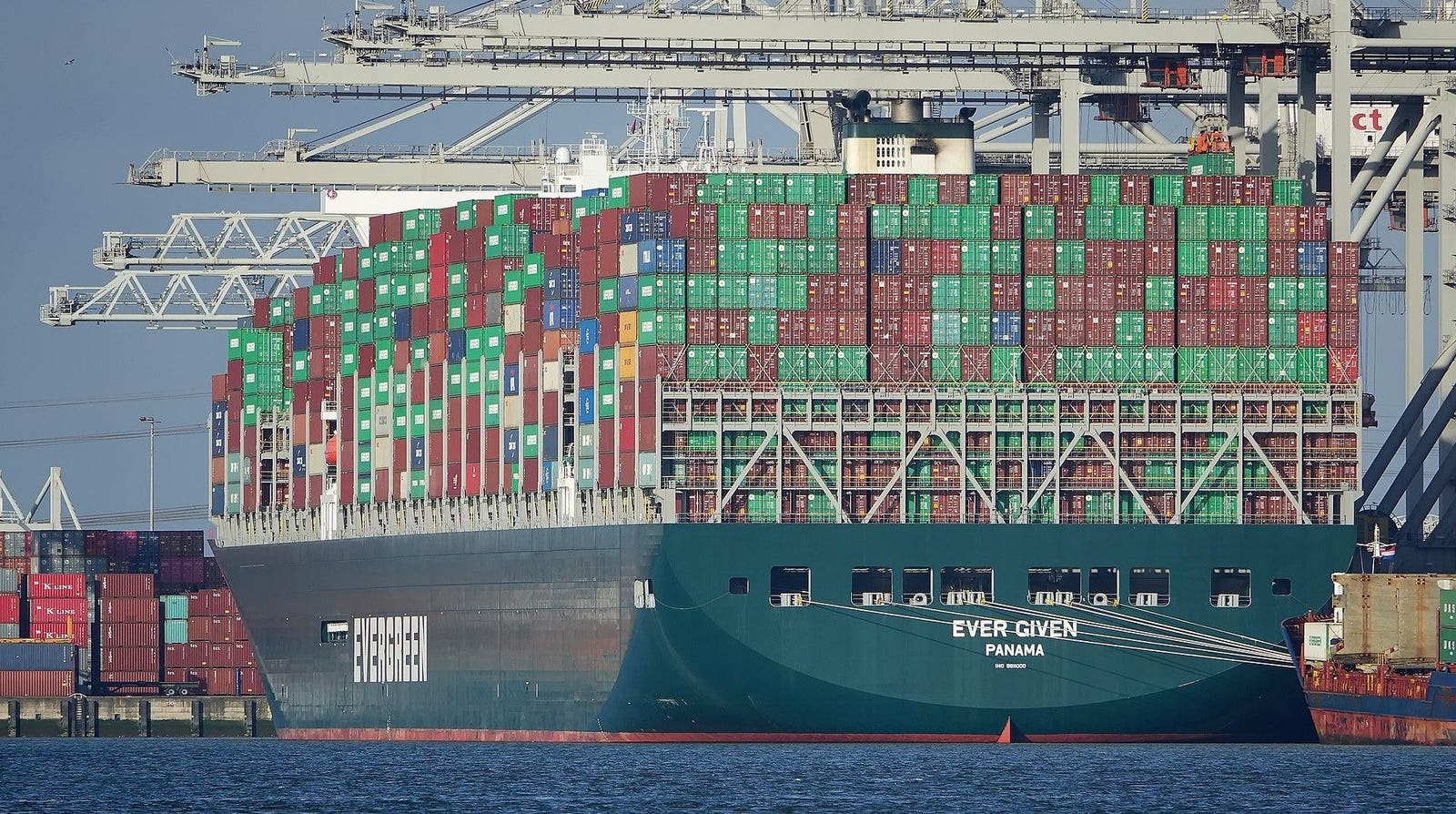Definitely. There has been a lot written about fixing issues in the Defense Industrial Base. National security-critical technologies, we want to try to have most of the components made, if not in the U.S., than in friendly countries, with most of the raw materials for them again sourced from friendly countries. On robots, as automation advances more and more, this will help the U.S. and put China at a disadvantage, as goods made in China with humans could be made here with robots.We can’t build our weapons systems without components from our potential enemies at the moment. Or maybe worse, our systems have foreign components with who knows what features wired into them. So it’s a national defense issue too.
It doesn’t take much more to run a robot in USA then to run one in China, so hopefully the cost of labor becomes less important.
-
Please take a moment and update your account profile. If you have an updated account profile with basic information on why you are on Air Warriors it will help other people respond to your posts. How do you update your profile you ask?
Go here:
Edit Account Details and Profile
You are using an out of date browser. It may not display this or other websites correctly.
You should upgrade or use an alternative browser.
You should upgrade or use an alternative browser.
Energy Discussion
- Thread starter Treetop Flyer
- Start date
That’s all great, but not particularly relevant to the Forbes article.FWIW, the U.S. actually is still one of the top manufacturing nations in the world, coming in at #2 behind China in a country-to-country comparison and number three if one considers the European Union as a single entity. The U.S. accounts for around 16-18% of global manufacturing: https://www.weforum.org/agenda/2020/02/countries-manufacturing-trade-exports-economics/
You will not generally find low margin products like toys, plastic dishware, consumer electronics, etc...manufactured in the U.S., so the vast majority of things you will find in say a Target or Wal-Mart will be foreign made. But there is a whole underground world of industrial components and products that undergird the functioning of the economy and society that are made here. Manufacturing has shrank as a portion of the overall U.S. economy over the years, as there are other industries that have grown as well.
That said, manufacturing has been hurt in this country over the past decades by open trade policies that allowed for our competitors to have free trade with us but we still have to deal with protectionism with them (ex. China). Don't get me wrong, I am all for free trade, but it only works if other countries are not engaging in protectionism and subsidies for their own industries. Shipbuilding is a prime example. Many countries for years subsidized their shipbuilding industries, but the U.S. ceased this practice in 1981, which made it very difficult for our shipbuilding industry to continue to compete.
This is already government policy for cybersecurity for many applications.we want to try to have most of the components made, if not in the U.S., than in friendly countries,
I’ve wondered about tablets used in the cockpit, or watches.This is already government policy for cybersecurity for many applications.
By instruction, no personal devices allowed in most cases... in practice, that varies. Use of gov't provided devices are much less restrictive. What I'm referring to is, for example, TV monitors used in classified spaces must comply with restrictions on who/where the device is manufactured. That has been a thing for quite a while.I’ve wondered about tablets used in the cockpit, or watches.
I will repost this here.
U.S. Shipbuilding Is At Its Lowest Ebb Ever. How Did America Fall So Far?
A nation that was among the world’s leaders in commercial shipbuilding at key junctures in its history today builds less than 10 vessels for oceangoing commerce in a typical year.
China builds over a thousand such ships each year.
The entire U.S.-registered fleet of oceangoing commercial ships numbers fewer than 200 vessels, out of a global total of 44,000.

U.S. Shipbuilding Is At Its Lowest Ebb Ever. How Did America Fall So Far?
Does Washington realize that U.S. maritime supremacy is collapsing?www.forbes.com
The article laments the decline of US shipbuilding. I'm just pointing out that this shouldn't be a surprise to anyone. Whether a ship is constructed in the US, or sailed under our flag, is a matter of business efficiencies, not national strategic capacity, unlike the days of yore.
To echo what @Brett327 said it is a reality that has been around for at least 50 years for one main reason, cost. I had the privilege, or misfortune depending on how you look at it, of dealing with international merchant shipping regularly in my last active duty stint. Flags of convenience, opaque ownership buried in layers of shell companies and crews from every corner of the third world led by the crème of the second world is an easy way to describe the state of the global merchant fleet right now. Why is it like that? Because that's the cheapest way to get it done.
I've also dealt, in a roundabout fashion, with shipyard work in a recent civilian job and have seen the cost and quality of said work of foreign countries versus the good 'ol USA of A. Not only was the foreign work of far better quality but it was also about half the price and done in less time too. That sort of savings happen when you don't have unions, labor or environmental laws, and employ an army of foreign nationals who will do the work for a fraction of the cost in not so great conditions.
Ain't capitalism grand?
On the flip side the US merchant fleet would be in far smaller if we didn't heavily subsidize it and ensure by federal law that it had captive markets, win one for heavy government control of an industry.
Last edited:
ABMD
Bullets don't fly without Supply
Back to the energy discussion, NYMEX futures are down 5% this morning, mid $7s, volatility is wild. Also, I don't want to leave out our electric friends...I heard you may also be seeing a significant increase in their electricity rates (>50%) over the next few years (!).
Back to the energy discussion, NYMEX futures are down 5% this morning, mid $7s, volatility is wild. Also, I don't want to leave out our electric friends...I heard you may also be seeing a significant increase in their electricity rates (>50%) over the next few years (!).
Who is "their" here? Is this a 50% increase in charging rates for e-autos, or a 50% increase in electricity rates overall?
I'd tend to believe the latter, based on overall trends... wish I had a spare $60K to throw at the problem right now- we'd never pay an electric bill again.
ABMD
Bullets don't fly without Supply
The "their" I am speaking about is anyone with an electric meter attached to their house or business.Who is "their" here? Is this a 50% increase in charging rates for e-autos, or a 50% increase in electricity rates overall?
I'd tend to believe the latter, based on overall trends... wish I had a spare $60K to throw at the problem right now- we'd never pay an electric bill again.
Even going all solar, you'd probably still hold on to a portion of your utility bill. Usually, you're still paying for distribution charges. Unless you're thinking of going completely off-grid.
The "their" I am speaking about is anyone with an electric meter attached to their house or business.
Even going all solar, you'd probably still hold on to a portion of your utility bill. Usually, you're still paying for distribution charges. Unless you're thinking of going completely off-grid.
Off-grid would be my choice. Hard to do from my current suburban palace. Maybe down the road a bit, with some land slightly further out of town though...
Back to the Future for the Europeans.

 www.france24.com
www.france24.com

Dutch join Germany, Austria, in reverting to coal
The Dutch joined Germany and Austria in reverting to coal power on Monday following an energy crisis provoked by Russia's invasion of Ukraine.
Interesting…I wonder how all of this will work it’s way through the complexities anti-Putin/anti-carbon/environmentalist/pro-Europe/realist school/globalist matrix of conflicting ideologies with a broadly common goal?Back to the Future for the Europeans.

Dutch join Germany, Austria, in reverting to coal
The Dutch joined Germany and Austria in reverting to coal power on Monday following an energy crisis provoked by Russia's invasion of Ukraine.www.france24.com
One thing it confirms is that getting off of fossil fuels is a big eco-politico win. Stuff like this hopefully nudges us along a little faster.Interesting…I wonder how all of this will work it’s way through the complexities anti-Putin/anti-carbon/environmentalist/pro-Europe/realist school/globalist matrix of conflicting ideologies with a broadly common goal?
I look forward to the day when we can tell Putin to drink his oil.
One thing it confirms is that getting off of fossil fuels is a big eco-politico win. Stuff like this hopefully nudges us along a little faster.
I look forward to the day when we can tell Putin to drink his oil.
How exactly is that going to happen? I don't see anyone building nuke plants or removing petrochemicals from the equation, so help me connect the dots.
Or was that sarcasm?
